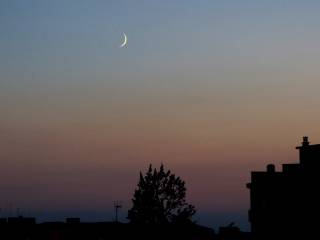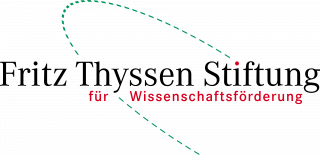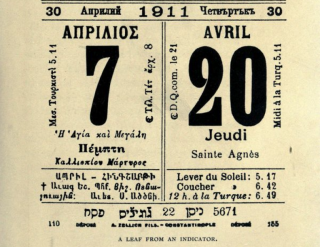
The Qaraites broke off from mainstream Rabbanite Judaism in 9th-century Iraq, and became a powerful Jewish movement in subsequent centuries, in the Near East, Byzantine Empire, and other Jewish-populated regions. Their main tenet was to reject the authority of the Talmud and rabbinic tradition, and to rely instead on a fresh reading of biblical scriptures, which led to substantially different interpretations and practices in many areas.
Among the most conspicuous differences between Qaraites and Rabbanites was how they reckoned the calendar. Whereas mainstream Rabbanite Jews followed a fixed calendar based on calculation, medieval Qaraites in Muslim lands determined the calendar by empirical factors, such as new moon sightings and the state of ripeness of the crops. These fundamental differences often led to festivals being celebrated on different dates, and hence, to considerable polemic and controversies.
This project investigated the origins of the Qaraite and the fixed Rabbanite calendars, which arose in the 8th-9th centuries and which, in our hypothesis, were closely intertwined. It studied the calendar disagreement between Qaraites and Rabbanites, its significances on each side of the debate, and its polemical uses. This research also reflected on how people run their lives with different timeframes and calendars, and on the impact this exerts upon the sense of social belonging and identity.
Image: New Moon crescent. Photo by Mauro Perani.
Workshops
Calendar Polemics in Medieval Judaism and Islam (9th–11th centuries)
September 2019, Centre for Advanced Studies, Ludwig Maximilian University of Munich
This one-day workshop was linked to our research on Qaraite and Rabbanite calendar disagreements and the extent to which their debates were influenced by legal and ideological factors and similar debates in contemporary Islam. The workshop was organised by Sacha Stern (UCL) and Ronny Vollandt (LMU), with presentation by Sacha Stern, Nadia Vidro and two external participants. The workshop attracted an audience of about 20 participants and was preceded by an introductory session on the Jewish calendar for students.
Workshop poster (PDF) / Full workshop programme (PDF)
Time and Social Cohesion
25 April 2022, Institute of Advanced Studies, UCL

Workshop programme (Word)
Lecture Recordings
Nadia Vidro (8 March 2023), [Nehemia Gordon’s podcast] Hebrew Voices #154 – "Reaping the Benefits of the Medieval Aviv Calendar (Part 1)"; or on YouTube
Nadia Vidro (8 February 2023), [Nehemia Gordon’s podcast] Hebrew Voices #153 – "Sighting the New Moon in the Middle Ages"; or on YouTube
Nadia Vidro (17 January 2023), Geniza Lab Live: "The Qaraite Calendar and Calendar Diversity in Medieval Palestine and Egypt with Dr. Nadia Vidro." In this paper, Dr. Nadia Vidro provides an overview of the practicalities of the empirical calendar reckoning from Qaraite literary and documentary sources and discusses calendar diversity within the Qaraite movement and between Rabbanites and Qaraites. She also looks at strategies for converting dates in medieval Qaraite documents to Common Era dates.
Time and Social Cohesion Workshop Lectures
- Sacha Stern (UCL), Jewish sects and Christian heresies: the origins of the myth of ‘time and social cohesion’ (Includes workshop introduction)
- François de Blois (UCL), Calendars in the ancient and medieval Iranian world: coexistence and competition
- Nadia Vidro (UCL), Calendar differences and social cohesion in medieval Jewish societies of the Near East
- Andreas Schönle (Bristol), Peter the Great’s calendar reforms, plural times, and community building in 18th-century Russia
- Rafael Fuentes Tarin (UCL and Ashoka University): Calendars and power: unravelling the political economy of Sikh timekeeping practices in India. (Includes workshop closing remarks)
Associated Publications
Nadia Vidro (2023), ‘Qaraite new moon observation in the tenth and eleventh centuries and its ritual and calendrical implications’, Jewish Studies Quarterly 30/3, 259–280
Throughout the ages setting the calendar by lunar observation has been one of the most salient Qaraite practices and a key component of the Qaraite religious identity. It is asserted in a variety of sources belonging to many different genres and can sometimes stand as a synecdoche for the entirety of Qaraite customs. The present article analyses the method of setting months by sighting the crescent as it is described in Qaraite legal and exegetical works from the 10th–11th centuries and compares it with the Jewish mishnahic observational calendar and the Muslim calendar. The article also looks at the implications for the religious observance of a calendar in which beginnings of months could not be known in advance, and discusses attitudes to and the lived experience of calendar diversity that existed within the Qaraite movement and between Qaraites and Rabbanites.
Nadia Vidro (2023), 'On the date of composition of the Book of Commandments by the Qaraite Levi b. Yefet', Zutot: Perspectives on Jewish Culture 20 (2023), 87-97
The Book of Commandments of the influential Qaraite scholar Levi b. Yefet is traditionally dated 1006/7 CE. This date is based on the Hebrew translation of the Book of Commandments and is irreconcilable with a calendrical characteristic of this year provided by Levi b. Yefet. In this article I propose to revise the date of composition of the Book of Commandments to 1009 CE. This date is given in a copy of the Arabic original of the code and is calendrically consistent. I also discuss events in the calendar of Palestinian Qaraites that prompted Levi b. Yefet to mention the year in which he was writing and that took place due to irregular weather patterns.
Sacha Stern (2022), ‘An eighth-century Easter cycle in Hebrew (T-S NS 98.51)’, Taylor-Schechter Genizah Research Unit, Cambridge University Library, Fragment of the Month, April 2022
A short piece on the earliest known Jewish description of the Christian calendar.
Nadia Vidro (2022) ‘The medieval Qaraite calendar in the Diaspora’, Aleph: Historical Studies in Science and Judaism 22/1–2, 125–156
One of the most salient divisions between medieval Rabbanites and Qaraites was in the field of calendar. Qaraites and Rabbanites disagreed on how to determine which years to intercalate (i.e., to extend with the insertion of a thirteenth month) in order to keep up with the seasons. While the Rabbanites used a fixed nineteen-year cycle of intercalation, the Qaraites maintained that intercalation must be based on the state of ripeness of barley crops in Palestine. This created problems for Qaraite communities outside of the Land of Israel, many of whom found it impossible to receive information about the state of crops in Palestine in time to celebrate Passover. This article investigates how medieval Qaraite Diaspora communities made a decision to intercalate. Based on a wide range of sources many of which were not previously discussed, it studies the Diaspora communities’ approaches to empirical intercalation and provides an in-depth analysis of the Qaraites’ attitude toward and use of mathematical methods, such as the method of the vernal equinox and the Rabbanite nineteen-year cycle of intercalations. The article also reflects on the attitude of Palestinian Qaraite ideologists toward the calendar situation in the Diaspora and argues that the division between Qaraites as adherents of an empirical intercalation vs. Rabbanites as followers of a fixed calculated scheme was never clear-cut when considered in the context of the entire Qaraite Jewish community, and of lived practice rather than ideology.
Nadia Vidro (2021), ‘Aviv barley and calendar diversity among Jews in eleventh-century Palestine’, Journal of Jewish Studies 72/2, 283–312
Qaraites intercalated years on the basis of the state of ripeness of barley crops (aviv). Multiple Qaraite treatises are preserved, but documentary evidence of empirical intercalation is scarce, making it difficult to learn how it was performed in practice. This article examines two Qaraite calendar chronicles that document barley observations and decisions regarding intercalation in a range of years in the eleventh century. They shed important light on how the Qaraite calendar operated over periods of time and attest to frequent calendar difference within the Qaraite movement and between Qaraites and Rabbanites. The chronicles make it clear that the Qaraite calendar of the period was not a monolithic system counterposed to that of the Rabbanites.
Nadia Vidro (2021), ‘Al-Qirqisānī’s account of historical Jewish calendars and its dependence on the commentary on Genesis by Saʿadya Gaon: a study of Kitāb al-Anwār VII.1’, Ginzei Qedem 17, 11*–49*
This article reconstructs the beginning of discourse VII of al-Qirqisānī’s legal code Kitāb al-Anwār, missing in Leon Nemoy’s standard edition of the code, and presents an annotated edition and translation of Kitāb al-Anwār, discourse VII, chapter 1. A comparison of this chapter with Saʿadya Gaon’s commentary on Genesis 1:14 demonstrates significant verbatim overlap between the two texts and suggests that al-Qirqisānī embedded in Kitāb al-Anwār passages from Saʿadya’s commentary on Genesis without identifying them as quotations.
Nadia Vidro (2021). Non-Rabbanite Jewish calendars in the works of Jacob al-Qirqisānī and Saadia Gaon, Aleph: Historical Studies in Science and Judaism 21.1, pp. 149–187.
The correct way of setting the calendar was a matter of much debate among medieval Jews. While it is well-known that medieval Rabbanite and Qaraite communities practiced different calendars, the Jewish calendar landscape of the ninth-tenth centuries appears to have been much more diverse. Medieval sources suggest that Jewish groups in that period used calendars based on a variety of principles including observation, different calculations, and a combination of observation and calculation. No in-depth examination exists of medieval alternatives to the Rabbanite calendar. This article is a study of non-Rabbanite medieval Jewish calendars described in tenth-century Babylonian works the Kitāb al-Tamyīz and the Commentary on Genesis by Saadia Gaon, and Kitāb al-Anwār wal-Marāqib by Jacob al-Qirqisānī. In addition to analysing the calendation methods described in the sources, I assess the trustworthiness of Saadia and al-Qirqisānī’s reports and suggest that they reflect real calendars of the period with some degree of accuracy.
Nadia Vidro (2019), ‘The Book against the People of the Equinox: T-S K6.63’. Taylor-Schechter Genizah Research Unit, Cambridge University Library, Fragment of the Month, September 2019
A short piece on a lost work of Yūsuf al-Baṣīr, polemicising against those who intercalate by the equinox
 Close
Close



